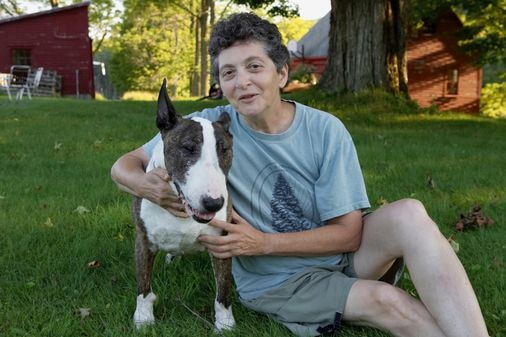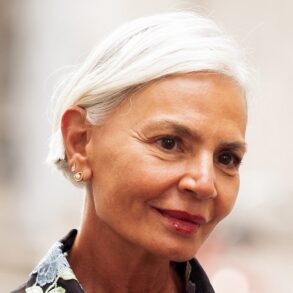
One of Sarah Wunsch’s farthest reaching cases as an ACLU attorney evolved from an October 2007 incident when another lawyer, Simon Glik, was walking along Tremont Street and saw three police officers using what he considered excessive force during an arrest.
Glik took out his cellphone, began recording the officers, and within minutes was in handcuffs himself, charged with illegal wiretapping. Nearly four years later, the US Court of Appeals for the First Circuit in Boston unanimously ruled that he had the right to record what had transpired.
“This is a resounding victory for the First Amendment right to openly record police officers carrying out their duties in a public place,” Ms. Wunsch, who was one of Glik’s attorneys, said in a statement after the ruling. “It will be influential around the country in other cases where people have been arrested for videotaping the conduct of the police.”
Neither she nor Glik nor the Appeals Court judges could have predicted how important that legal foundation would become, however. Nearly 13 years after Glik’s arrest, 17-year-old Darnella Frazier videotaped the Minneapolis arrest and death in police custody of George Floyd — a recording that shocked the world, spurred scores of protests, and played a role in elections across the nation.
Ms. Wunsch, who formerly was deputy legal director for the American Civil Liberties Union of Massachusetts, was 75 when she died in her Brookline home Aug. 17 of complications from a stroke she suffered three years ago.
“That landmark case Sarah won set the stage nationwide for the right to record the police and, I think, really changed the world for the good,” said Carol Rose, executive director of the ACLU of Massachusetts.
“She was able to see around the corner and to see where there were civil rights violations occurring, and how to make them stop,” Rose said. “And she did it with kindness and gentleness, as well as tenacity.”
During her ACLU tenure, Ms. Wunsch defended the rights of women who challenged workplace rules that said they had to wear makeup, and she handled cases concerning students of color whose schools said they couldn’t wear braided hair extensions.
Along with being successful in courtrooms, she was adept in the court of public opinion, ready with succinct quotes that went to the heart of each matter.
“The more we look at the school, the hair problems appear to be the tip of the iceberg about issues of discrimination,” she said in a 2017 Globe interview about the Mystic Valley Regional Charter School’s rule that prohibited hair extensions, which had affected two Black teenaged sisters.
In a 2000 case, when a court ordered the state to take a pregnant woman into custody and force her to submit to a medical examination, Ms. Wunsch intervened.
“When a woman becomes pregnant, she does not give up her constitutional rights to privacy and bodily integrity,” Ms. Wunsch said in a statement then.
And in 1991, she advocated on behalf of a ticket-counter clerk Continental Airlines had fired when the woman refused to abide by a company rule that she wear makeup for her job at Logan International Airport.
If Continental believes that “the public cares more about a ticket agent than service, then they have sadly misjudged what the public wants,” Ms. Wunsch told the Globe that May, days before the airline reversed course and rehired the woman. “We care about safety, we care about good service, and we care about getting there on time … We could care less about makeup.”
As a mentor, Ms. Wunsch “showed me, every day, how it is possible to be both fierce and kind,” Matthew Segal, senior staff attorney for the ACLU’s State Supreme Court Initiative, wrote in a tribute after she died.
“Sarah very kindly asked people in power to do what was right,” Segal wrote. “And if they didn’t, she would very kindly, and with love, sue the living daylights out of them.”
Born in Brooklyn, N.Y., on Nov. 18, 1947, Sarah Wunsch grew up in Westport, Conn.
Her mother, Helen Gellis Wunsch, had been a librarian before marrying. Her father, Harry Wunsch, was a mechanical engineer.
Ms. Wunsch “was born into a family of people who cared about civil rights and human rights,” said her spouse, Christine Ernst. “She certainly got a lot of that from her upbringing.”
After graduating from Cornell University, Ms. Wunsch briefly was a junior-high history teacher. Then she returned to school, graduating from Rutgers Law School in New Jersey.
Before joining the ACLU of Massachusetts staff, she was an attorney in New York for the United Electrical, Radio and Mechanical Workers of America and at the nonprofit Center for Constitutional Rights.
Ms. Wunsch, whose previous marriage ended in divorce, initially was director of the Cambridge Human Rights Commission before becoming an ACLU of Massachusetts staff attorney, and later the office’s deputy legal director.
A mutual friend introduced Ernst, a plumbing contractor, to Ms. Wunsch. They were a couple for some three decades and only married a little more than a year ago, in part because of Ms. Wunsch’s stroke.
“We were convinced that it was really important to do,” Ernst said, “so we went down to town hall and got ourselves hitched.”
After retiring in 2018, Ms. Wunsch had more time for other pursuits, such as working with Jewish Voice for Peace and informally performing music.
“She played cello as a child and had kind of a fraught relationship with it,” Ernst said.
Having begun playing the recorder in college, Ms. Wunsch encouraged nieces and nephews to do so as well, sometimes gathering with them to perform songs.
“She also loved to sing and would always get people to sing,” Ernst said. “She had a beautiful voice, a low voice.”
A celebration of life will be announced for Ms. Wunsch, who in addition to Ernst leaves her four brothers, David of Belmont, Carl of Cambridge, James of Manhattan, N.Y., and Gerald of Chicago.
Ms. Wunsch’s many other cases included working with Logan Airport employees who had voiced concerns about racial profiling, and handling matters that protected LGBTQ rights.
“I don’t know what your office was doing, but we were dancing in the hallways,” she told a cheering State House rally after the US Supreme Court’s 2015 decision that the Constitution guarantees the right to same-sex marriages.
She also successfully argued before the state Supreme Judicial Court that panhandling is a form of free speech that police can’t squelch.
“Nobody is saying begging is a great way of life,” Ms. Wunsch told the Globe after the 1997 decision threw out a Cambridge law.
But, she said, begging for help “should not be a crime. People should not be put in jail for it.”
In his tribute, Segal said one of his last recollections of working with Ms. Wunsch was on Super Bowl Sunday in 2017, when the New England Patriots dramatically defeated the Atlanta Falcons in overtime.
That Sunday also fell two days after a federal judge temporarily blocked the Trump administration ban that prohibited anyone from seven predominantly Muslim countries from visiting the United States.
“Instead of watching the game, she was at Logan Airport, welcoming people arriving from Iran under the protection of the court order Sarah had helped to secure against the Muslim ban,” Segal wrote. “That was Sarah: protecting rights, and welcoming everyone.”
Bryan Marquard can be reached at bryan.marquard@globe.com.
This post was originally published on this site be sure to check out more of their content.








